|
시장보고서
상품코드
1797910
법률 서비스용 RPA 시장 예측 - 솔루션 유형별, 프로세스 유형별, 배포 유형별, 용도별, 최종 사용자별, 지역별 분석(-2032년)Robotic Process Automation in Legal Service Market Forecasts to 2032 - Global Analysis By Solution Type, Process Type, Deployment Type, Application, End User and By Geography |
||||||
Stratistics MRC에 따르면 세계의 법률 서비스용 RPA 시장은 2025년 32억 달러를 차지하며 예측 기간 동안 CAGR은 19.14%를 나타내 2032년에는 109억 2,000만 달러에 이를 것으로 전망됩니다.
법률 서비스용 RPA(Robotic Process Automation)는 소프트웨어 봇을 사용하여 문서 검토, 계약 분석, 규정 준수 점검 및 이슈 데이터 입력과 같은 규칙을 기반으로 반복 작업을 자동화합니다. RPA는 이러한 번거로운 관리 업무를 관리함으로써 정밀도 향상과 운영 비용 절감을 실현하고 법률 전문가를 전략적 및 분석적 업무에 집중시킬 수 있습니다. 또한 RPA는 법률 사무소 및 기업의 법무 부서에서 규제 보고서, 전자 검색, 실사와 같은 프로세스를 가속화하고 인적 실수를 줄이고 빠른 턴어라운드 시간을 보장할 수 있습니다.
미국 법조협회에 따르면 로보틱 프로세스 오토메이션을 포함한 자동화 툴은 반복적인 법무 업무를 최대 23% 절감할 수 있으므로 변호사는 보다 많은 시간을 청구 가능한 클라이언트 중시 업무에 충당할 수 있습니다.
비용 효율성과 생산성 향상
RPA의 도입을 통해 기업의 법무 부서 및 법률 사무소는 데이터 입력, 문서 검토, 사례 관리, 컴플라이언스 추적 등 대개 많은 직원의 시간을 빼앗는 규칙에 따라 반복적인 작업을 자동화할 수 있습니다. 전문가들은 수작업 개입을 줄임으로써 가치있는 법적 분석과 고객에 대한 조언 업무에 집중할 수 있어 운영 비용을 최대 30%까지 줄일 수 있습니다. 자동화는 일정한 정확성을 보장하므로 시간적 제약이 있는 절차에서 인위적 실수가 발생할 가능성이 낮습니다. 가속화, 인건비 절감, 효율적인 워크플로우로 고객 만족도와 서비스 제공이 향상되므로 많은 조직에서 1년 이내에 투자 수익률(ROI)을 얻을 수 있습니다.
유연성 제한 및 지속적인 유지보수
RPA 봇은 일반적으로 엄격한 지침을 준수하며 문서 형식, 소프트웨어 인터페이스 및 법원 포털 변경에 독립적으로 대응할 수 없습니다. 시스템이 변경될 때마다 이러한 봇은 자주 수동으로 재구성해야 하므로 효율성이 떨어지고 유지 보수 비용이 증가합니다. 또한, 특히 워크플로우가 지속적으로 변화하는 역동적인 법적 환경에서는 이러한 엄격한 자동화 유지보수 및 디버깅에 비용이 들기 때문에 초기 수익이 시간이 지남에 따라 손상될 수 있습니다.
생성형 AI에 의한 성장과 서비스 모델의 변화
생성형 AI는 실사, 문서 요약, 계약서 초안을 지원하는 엔진을 제공함으로써 법률 서비스 제공 방법을 빠르게 변화시키고 있습니다. 이는 시간당 급여에서 가치 기반 프레임워크로의 과금 모델의 변화로 이어질 수 있습니다. 효율성과 가격 체계를 개선하기 위해, 특히 인도의 법률 사무소는 인간 판단과 기계 속도를 결합하여 이러한 도구를 신중하게 통합합니다. 또한 AI를 활용한 계약 관리 및 기술 교육과 같은 구독 기반 서비스에 생성형 AI를 통합함으로써 얼터너티브 법률 서비스 제산업체(ALSP)는 수요를 활용하고 있습니다. 고객층 확대와 더불어 새로운 수익원을 창출함으로써 기업은 보다 지능적이고 확장 가능한 서비스를 보다 경제적이고 고객 중심의 방식으로 제공할 수 있게 됩니다.
시장 통합 및 벤더 의존 위험
소수의 강력한 공급업체가 법무 자동화 시장을 독점하고 있으며, 그 통합은 점점 더 진행되고 있습니다. 비용이 많이 들고 환승이 어려운 독자적인 플랫폼에 의존하게 되면 공급업체 락인의 위험이 발생합니다. 벤더가 재정적으로 불안정해지거나 기능을 중단하거나 가격 모델을 변경하면 법률 사무소가 업무에 지장을 줄 수 있습니다. 또한 대기업이 소규모 또는 전문성이 높은 공급업체를 인수하고 서비스의 초점과 품질이 바뀔 수 있습니다. 법률 서비스 제산업체는 이러한 위험을 줄이기 위해 적응성이 높고 상호 운용 가능한 RPA 솔루션을 선호하고 데이터 이식성, 가격 및 연속성을 다루는 견고한 계약 보호를 협상해야 합니다.
COVID-19의 영향 :
COVID-19의 대유행은 기업의 법무부문과 법률사무소가 증대하는 안건을 관리하고 업무를 원격지에 유지하며 경제가 불투명한 가운데 비용을 절감하는 임박한 요구에 직면했기 때문에 법률서비스 업계에서 로보틱 프로세스 오토메이션(RPA)의 도입을 비약적으로 가속화시켰습니다. 재택근무제도와 락다운은 수작업에 의한 종이 기반 절차의 비효율성을 부각시켜 문서, 계약서 검토, 컴플라이언스 체크, 클라이언트에 대한 대응 등을 디지털로 관리하는 자동화에 신속한 투자를 촉구했습니다. 클라우드 플랫폼과 연결하여 사설 법률 데이터에 대한 안전한 원격 액세스를 보장함으로써 RPA는 비즈니스 연속성을 촉진하는데도 크게 기여했습니다. 팬데믹 이후, 이 자동화의 동향은 계속되고 있으며, RPA는 법률 업계의 디지털 변혁을 지지하는 중요한 힘으로서 확고한 지위를 구축하고 있습니다.
예측 기간 동안 On-Premise 부문이 최대가 될 전망
예측 기간 동안 On-Premise 부문이 최대 시장 점유율을 차지할 것으로 예상되지만, 법률 부서의 엄격한 데이터 보안, 개인정보 보호 및 규정 준수 요구 사항이 배경에 있습니다. 법률 사무소 및 기업의 법무 부서는 민감한 고객 데이터를 완벽하게 관리하고, 자동화 워크플로우를 내부 프로토콜에 맞추고, 법역별 규제 요구 사항을 준수할 수 있기 때문에 On-Premise 배포를 선호합니다. 이 구성은 민감한 데이터가 IT 인프라에 머무르도록 보장하므로 타사 위험에 노출될 가능성이 낮습니다. 또한 클라우드 채택이 증가하고 있지만 보안, 감사 가능성 및 거버넌스가 비즈니스 최우선 과제인 환경에서는 On-Premise가 계속해서 가장 인기 있는 옵션이 되고 있습니다.
예측기간 동안 계약 관리 분야가 가장 높은 CAGR을 나타낼 전망
예측 기간 동안 계약 관리 분야는 가장 높은 성장률을 나타낼 것으로 예상되며, 그 배경에는 복잡하고 대량의 계약을 관리할 때의 정확성, 효율성 및 규정 준수에 대한 수요가 증가하고 있습니다. RPA는 AI 및 자연 언어 처리와 결합하여 계약의 초안, 검토, 승인 워크플로우, 업데이트 추적을 자동화하고 수작업 및 오류 위험을 크게 줄입니다. 또한 법률 팀이 법규의 변화를 선도하기 때문에 실시간 컴플라이언스 모니터링, 기한 경보 및 조항 위험 분석도 가능합니다. 게다가 계약 관리의 자동화는 세계화, 크로스보더 거래, 디지털 변환에 대한 노력의 가속화로 고객 서비스의 품질 향상, 비용 절감, 턴어라운드 시간의 신속화를 목표로 하는 법률 사무소 및 기업의 법무 부문에 있어서 매우 중요해지고 있습니다.
최대 점유율을 차지하는 지역 :
예측 기간 동안 북미가 가장 큰 시장 점유율을 차지할 것으로 예측됩니다. 이 지역의 견조한 법률 기술 도입률, 정교한 법률 인프라 및 대규모 RPA 공급업체가 뒷받침하고 있습니다. 문서 검토, 계약 관리, 규정 준수 추적, 전자 검색 자동화는 미국과 캐나다 법률 사무소 및 기업 법무 부서에서 처음 도입되었습니다. RPA는 생산성 향상과 비용 절감을 위해 사용되었습니다. 또한 엄격한 규제와 안전하고 감사 가능한 절차 요구 사항도 수요를 뒷받침합니다. 또한 북미는 AI 주도의 법무 기술에 대한 대규모 투자와 확립된 클라우드 에코시스템을 통해 RPA 대응 법무 서비스의 업계 리더이기도 합니다.
가장 높은 CAGR을 나타낼 것으로 예상되는 지역 :
예측 기간 동안 아시아태평양은 법률 프로세스 아웃소싱 부문 확대, 디지털 도입 증가, 급속한 경제 성장에 힘입어 가장 높은 CAGR을 나타낼 것으로 예측됩니다. 인도, 중국, 싱가포르는 효율적인 숙련 노동 비용, 견고한 IT 인프라 및 자동화를 추진하는 정부 정책을 통해 기술을 활용한 법률 서비스용 주요 기지로 자리 잡고 있습니다. 크로스보더 거래와 규제 프레임워크의 복잡화에 따라 법률 사무소 및 기업의 법무 부문은 계약 관리, 컴플라이언스 모니터링 및 소송 지원을 위한 RPA를 도입하고 있으며, 아시아태평양은 향후 수년간 가장 급성장하는 시장 부문이 되고 있습니다.
무료 맞춤형 서비스
이 보고서를 구독하는 고객은 다음 무료 맞춤설정 옵션 중 하나를 사용할 수 있습니다.
- 기업 프로파일
- 추가 기업의 종합적 프로파일링(3개사까지)
- 주요 기업의 SWOT 분석(3개사까지)
- 지역 구분
- 고객의 관심에 응한 주요국 시장 추계·예측·CAGR(주 : 타당성 확인에 따름)
- 경쟁 벤치마킹
- 제품 포트폴리오, 지리적 존재, 전략적 제휴에 기반한 주요 기업 벤치마킹
목차
제1장 주요 요약
제2장 서론
- 개요
- 이해관계자
- 분석 범위
- 분석 방법
- 데이터 마이닝
- 데이터 분석
- 데이터 검증
- 분석 접근
- 분석 자료
- 1차 조사 자료
- 2차 조사 정보원
- 전제조건
제3장 시장 동향 분석
- 소개
- 성장 촉진요인
- 성장 억제요인
- 시장 기회
- 위협
- 용도 분석
- 최종 사용자 분석
- 신흥 시장
- 신형 코로나 바이러스 감염(COVID-19)의 영향
제4장 Porter's Five Forces 분석
- 공급자의 협상력
- 바이어의 협상력
- 대체 제품의 위협
- 신규 진출기업의 위협
- 기업 간 경쟁
제5장 세계의 법률 서비스용 RPA 시장 : 솔루션 유형별
- 소프트웨어
- 서비스
제6장 세계의 법률 서비스용 RPA 시장 : 프로세스 유형별
- 규칙 기반 처리
- 지식 기반 처리
- 데이터 입력
- 데이터 추출
제7장 세계의 법률 서비스용 RPA 시장 : 배포 유형별
- On-Premise
- 클라우드 기반
- 하이브리드
제8장 세계의 법률 서비스용 RPA 시장 : 용도별
- 문서 관리
- 계약 관리
- 컴플라이언스 관리
- 청구 및 인보이스 발행
- 소송 지원
제9장 세계의 법률 서비스용 RPA 시장 : 최종 사용자별
- 법률 사무소
- 기업법무부서
- 정부기관
제10장 세계의 법률 서비스용 RPA 시장 : 지역별
- 북미
- 미국
- 캐나다
- 멕시코
- 유럽
- 독일
- 영국
- 이탈리아
- 프랑스
- 스페인
- 기타 유럽
- 아시아태평양
- 일본
- 중국
- 인도
- 호주
- 뉴질랜드
- 한국
- 기타 아시아태평양
- 남미
- 아르헨티나
- 브라질
- 칠레
- 기타 남미
- 중동 및 아프리카
- 사우디아라비아
- 아랍에미리트(UAE)
- 카타르
- 남아프리카
- 기타 중동 및 아프리카
제11장 주요 동향
- 계약, 사업 제휴 및 협력, 합작 사업
- 기업 합병·인수(M&A)
- 신제품 발매
- 사업 확장
- 기타 주요 전략
제12장 기업 프로파일링
- IBM
- Thomson Reuters Inc
- Blue Prism
- Kofax
- HyperScience Inc
- NICE
- Luminance Inc
- Automation Anywhere
- Pegasystems(Pega)
- EdgeVerve
- UiPath
- Litify Inc
- WorkFusion
- Everlaw
- Nintex
According to Stratistics MRC, the Global Robotic Process Automation in Legal Service Market is accounted for $3.20 billion in 2025 and is expected to reach $10.92 billion by 2032 growing at a CAGR of 19.14% during the forecast period. Robotic Process Automation (RPA) in legal services involves using software "bots" to automate repetitive, rules-based tasks such as document review, contract analysis, compliance checks, and case data entry. RPA improves accuracy and lowers operating costs by managing these laborious administrative tasks, freeing up legal professionals to concentrate more on strategic and analytical work. Moreover, RPA can expedite processes like regulatory reporting, e-discovery, and due diligence in law firms and corporate legal departments, reducing human error and guaranteeing quicker turnaround times.
According to the American Bar Association, automation tools-including Robotic Process Automation-can reduce up to 23% of repetitive legal tasks, allowing lawyers to dedicate more time to billable, client-focused work.
Market Dynamics:
Driver:
Efficiency in cost and increased productivity
RPA makes it possible for corporate legal departments and law firms to automate repetitive, rule-based tasks that typically take up a lot of staff time, like data entry, document review, case management, and compliance tracking. Professionals can concentrate on high-value legal analysis and client advisory work by reducing manual intervention, which can save up to 30% in operating costs. Because the automation guarantees constant accuracy, there is less chance of human error in time-sensitive procedures. Because of the faster speeds, lower labor costs, and more efficient workflows, which improve customer satisfaction and service delivery, many organizations see a return on investment (ROI) in less than a year.
Restraint:
Restricted flexibility & ongoing maintenance
RPA bots usually adhere to strict guidelines and are unable to adjust on their own to modifications in document formats, software interfaces, or court portals. Every time systems change, these bots frequently need to be manually reconfigured, which reduces efficiency and increases maintenance costs. Additionally, initial returns may be eroded over time by the expense of maintaining and debugging these strict automations, particularly in dynamic legal environments where workflows are constantly changing.
Opportunity:
Growth using generative AI and changing service models
Generative AI is quickly changing the way legal services are delivered by providing engines that help with due diligence, summarize documents, and draft contracts. This could lead to a change in billing models from hourly to value-based frameworks. In order to improve efficiency and pricing structures, legal firms-particularly those in India-are carefully integrating these tools, combining human judgment with machine speed. Additionally, by incorporating generative AI into subscription-based services like AI-powered contract management and tech training, Alternative Legal Service Providers (ALSPs) are leveraging demand. In addition to expanding the clientele, this generates new sources of income, allowing businesses to provide more intelligent, scalable services in a more economical and customer-focused way.
Threat:
Risks of market consolidation and vendor dependency
A small number of powerful vendors are controlling the legal automation market, which is becoming more and more consolidated. When businesses become reliant on proprietary platforms that are costly or challenging to switch from, there is a risk of vendor lock-in. Legal firms may experience operational disruptions if a vendor experiences financial instability, discontinues features, or changes pricing models. Furthermore, larger companies may acquire smaller or specialized vendors, which could alter the focus or quality of services. Legal service providers must prioritize adaptable, interoperable RPA solutions and negotiate robust contractual protections that cover data portability, pricing, and continuity in order to lessen these risks.
Covid-19 Impact:
The COVID-19 pandemic tremendously accelerated the legal services industry's adoption of robotic process automation (RPA) as corporate legal departments and law firms faced pressing demands to manage growing caseloads, keep operations remote, and cut costs in the face of economic uncertainty. Work-from-home policies and lockdowns brought to light the inefficiencies of manual, paper-based procedures, which prompted a swift investment in automation to manage documents, contract reviews, compliance checks, and client on boarding digitally. By connecting with cloud platforms and guaranteeing safe, remote access to private legal data, RPA also significantly contributed to the facilitation of business continuity. Since the pandemic, this trend toward automation has continued, solidifying RPA as a key force behind the digital transformation of the legal industry.
The on-premises segment is expected to be the largest during the forecast period
The on-premises segment is expected to account for the largest market share during the forecast period, driven by the stringent data security, privacy, and compliance requirements of the legal sector. Since it enables them to keep complete control over sensitive client data, adapt automation workflows to internal protocols, and comply with jurisdiction-specific regulatory requirements, law firms and corporate legal departments favor on-premises deployment. This configuration lowers exposure to third-party risks by guaranteeing that sensitive data stays inside the company's own IT infrastructure. Moreover, on-premises continue to be the most popular option in settings where security, auditability, and governance are top operational priorities, even though cloud adoption is increasing.
The contract management segment is expected to have the highest CAGR during the forecast period
Over the forecast period, the contract management segment is predicted to witness the highest growth rate, fueled by the growing demand for accuracy, efficiency, and compliance when managing intricate, high-volume contracts. RPA greatly reduces manual labor and error risk by automating contract drafting, review, approval workflows, and renewal tracking when paired with AI and natural language processing. In order to keep legal teams ahead of regulatory changes, it also makes real-time compliance monitoring, deadline alerts and clause risk analysis possible. Furthermore, automated contract management is becoming crucial for law firms and corporate legal departments looking to increase client service quality, cut costs, and expedite turnaround times due to the acceleration of globalization, cross-border transactions, and digital transformation initiatives.
Region with largest share:
During the forecast period, the North America region is expected to hold the largest market share, Propelled by the region's robust legal technology adoption rate, sophisticated legal infrastructure, and significant RPA vendors. Automation for document review, contract management, compliance tracking, and e-discovery was first implemented by law firms and corporate legal departments in the United States and Canada. RPA was used to increase productivity and cut expenses. Demand is also fueled by strict regulations and the requirement for safe, auditable procedures. Additionally, North America is also the industry leader for RPA-enabled legal services due to significant investments in AI-driven legal technology and an established cloud ecosystem.
Region with highest CAGR:
Over the forecast period, the Asia Pacific region is anticipated to exhibit the highest CAGR, fueled by the expanding legal process outsourcing sector, rising digital adoption, and quick economic growth. India, China, and Singapore are emerging as major hubs for technology-enabled legal services, owing to their efficient skilled labor costs, robust IT infrastructure, and pro-automation government policies. As cross-border transactions and regulatory framework complexity increase, law firms and corporate legal departments are implementing RPA for contract management, compliance monitoring, and litigation support, making Asia-Pacific the fastest-growing market segment in the years to come.
Key players in the market
Some of the key players in Robotic Process Automation in Legal Service Market include IBM, Thomson Reuters Inc, Blue Prism, Kofax, HyperScience Inc, NICE, Luminance Inc, Automation Anywhere, Pegasystems (Pega), EdgeVerve, UiPath, Litify Inc, WorkFusion, Everlaw and Nintex.
Key Developments:
In June 2025, Hyperscience and Carahsoft Technology Corp announced a partnership aimed at transforming back office operations for Federal and State and Local Government Agencies. Under the agreement, Carahsoft will serve as a Master Government Aggregator(R) for Hyperscience, making the company's cutting-edge AI platform available to the Public Sector through Carahsoft's reseller partners and NASA Solutions for Enterprise-Wide Procurement (SEWP) V, National Association of State Procurement Officials (NASPO) ValuePoint, The Interlocal Purchasing System (TIPS) and OMNIA Partners contracts.
In May 2025, Thomson Reuters Corporation announced it has signed a definitive agreement to acquire TimeBase, a leading provider of Australian legislative solutions, for $6.5 million cash. TimeBase is a leading provider of Australian legislative information, offering a comprehensive platform for legal professionals to find, search, track, and understand legislation.
In April 2025, IBM and BNP Paribas announce the renewal and strengthening of the bank's partnership with IBM Cloud for 10 years, aimed at further bolstering its resilience, accelerating its cloud-native strategy, and supporting the development of generative artificial intelligence. This multi-year partnership is part of the bank's ongoing technology investments and multicloud strategy to support business growth, benefiting customers and employees.
Solution Types Covered:
- Software
- Service
Process Types Covered:
- Rule-Based Processing
- Knowledge-Based Processing
- Data Entry
- Data Extraction
Deployment Types Covered:
- On-Premises
- Cloud-Based
- Hybrid
Applications Covered:
- Document Management
- Contract Management
- Compliance Management
- Billing and Invoicing
- Litigation Support
End Users Covered:
- Law Firms
- Corporate Legal Departments
- Government Entities
Regions Covered:
- North America
- US
- Canada
- Mexico
- Europe
- Germany
- UK
- Italy
- France
- Spain
- Rest of Europe
- Asia Pacific
- Japan
- China
- India
- Australia
- New Zealand
- South Korea
- Rest of Asia Pacific
- South America
- Argentina
- Brazil
- Chile
- Rest of South America
- Middle East & Africa
- Saudi Arabia
- UAE
- Qatar
- South Africa
- Rest of Middle East & Africa
What our report offers:
- Market share assessments for the regional and country-level segments
- Strategic recommendations for the new entrants
- Covers Market data for the years 2024, 2025, 2026, 2028, and 2032
- Market Trends (Drivers, Constraints, Opportunities, Threats, Challenges, Investment Opportunities, and recommendations)
- Strategic recommendations in key business segments based on the market estimations
- Competitive landscaping mapping the key common trends
- Company profiling with detailed strategies, financials, and recent developments
- Supply chain trends mapping the latest technological advancements
Free Customization Offerings:
All the customers of this report will be entitled to receive one of the following free customization options:
- Company Profiling
- Comprehensive profiling of additional market players (up to 3)
- SWOT Analysis of key players (up to 3)
- Regional Segmentation
- Market estimations, Forecasts and CAGR of any prominent country as per the client's interest (Note: Depends on feasibility check)
- Competitive Benchmarking
- Benchmarking of key players based on product portfolio, geographical presence, and strategic alliances
Table of Contents
1 Executive Summary
2 Preface
- 2.1 Abstract
- 2.2 Stake Holders
- 2.3 Research Scope
- 2.4 Research Methodology
- 2.4.1 Data Mining
- 2.4.2 Data Analysis
- 2.4.3 Data Validation
- 2.4.4 Research Approach
- 2.5 Research Sources
- 2.5.1 Primary Research Sources
- 2.5.2 Secondary Research Sources
- 2.5.3 Assumptions
3 Market Trend Analysis
- 3.1 Introduction
- 3.2 Drivers
- 3.3 Restraints
- 3.4 Opportunities
- 3.5 Threats
- 3.6 Application Analysis
- 3.7 End User Analysis
- 3.8 Emerging Markets
- 3.9 Impact of Covid-19
4 Porters Five Force Analysis
- 4.1 Bargaining power of suppliers
- 4.2 Bargaining power of buyers
- 4.3 Threat of substitutes
- 4.4 Threat of new entrants
- 4.5 Competitive rivalry
5 Global Robotic Process Automation in Legal Service Market, By Solution Type
- 5.1 Introduction
- 5.2 Software
- 5.3 Service
6 Global Robotic Process Automation in Legal Service Market, By Process Type
- 6.1 Introduction
- 6.2 Rule-Based Processing
- 6.3 Knowledge-Based Processing
- 6.4 Data Entry
- 6.5 Data Extraction
7 Global Robotic Process Automation in Legal Service Market, By Deployment Type
- 7.1 Introduction
- 7.2 On-Premises
- 7.3 Cloud-Based
- 7.4 Hybrid
8 Global Robotic Process Automation in Legal Service Market, By Application
- 8.1 Introduction
- 8.2 Document Management
- 8.3 Contract Management
- 8.4 Compliance Management
- 8.5 Billing and Invoicing
- 8.6 Litigation Support
9 Global Robotic Process Automation in Legal Service Market, By End User
- 9.1 Introduction
- 9.2 Law Firms
- 9.3 Corporate Legal Departments
- 9.4 Government Entities
10 Global Robotic Process Automation in Legal Service Market, By Geography
- 10.1 Introduction
- 10.2 North America
- 10.2.1 US
- 10.2.2 Canada
- 10.2.3 Mexico
- 10.3 Europe
- 10.3.1 Germany
- 10.3.2 UK
- 10.3.3 Italy
- 10.3.4 France
- 10.3.5 Spain
- 10.3.6 Rest of Europe
- 10.4 Asia Pacific
- 10.4.1 Japan
- 10.4.2 China
- 10.4.3 India
- 10.4.4 Australia
- 10.4.5 New Zealand
- 10.4.6 South Korea
- 10.4.7 Rest of Asia Pacific
- 10.5 South America
- 10.5.1 Argentina
- 10.5.2 Brazil
- 10.5.3 Chile
- 10.5.4 Rest of South America
- 10.6 Middle East & Africa
- 10.6.1 Saudi Arabia
- 10.6.2 UAE
- 10.6.3 Qatar
- 10.6.4 South Africa
- 10.6.5 Rest of Middle East & Africa
11 Key Developments
- 11.1 Agreements, Partnerships, Collaborations and Joint Ventures
- 11.2 Acquisitions & Mergers
- 11.3 New Product Launch
- 11.4 Expansions
- 11.5 Other Key Strategies
12 Company Profiling
- 12.1 IBM
- 12.2 Thomson Reuters Inc
- 12.3 Blue Prism
- 12.4 Kofax
- 12.5 HyperScience Inc
- 12.6 NICE
- 12.7 Luminance Inc
- 12.8 Automation Anywhere
- 12.9 Pegasystems (Pega)
- 12.10 EdgeVerve
- 12.11 UiPath
- 12.12 Litify Inc
- 12.13 WorkFusion
- 12.14 Everlaw
- 12.15 Nintex



















